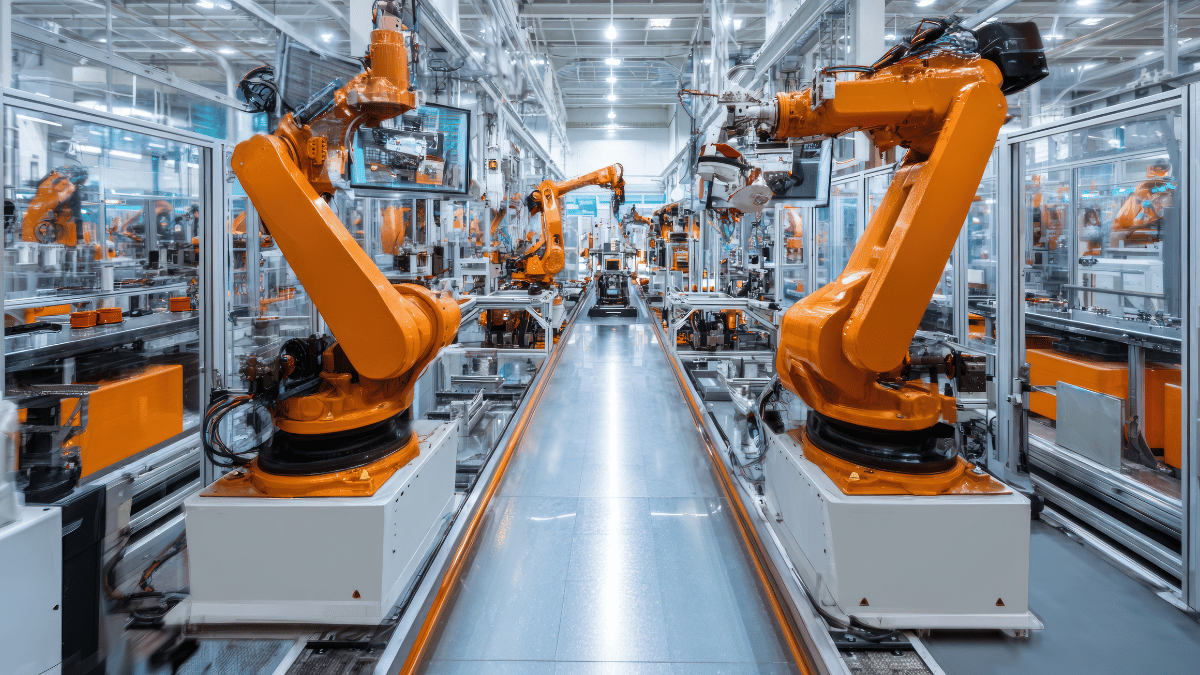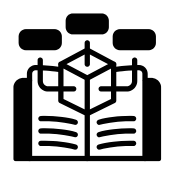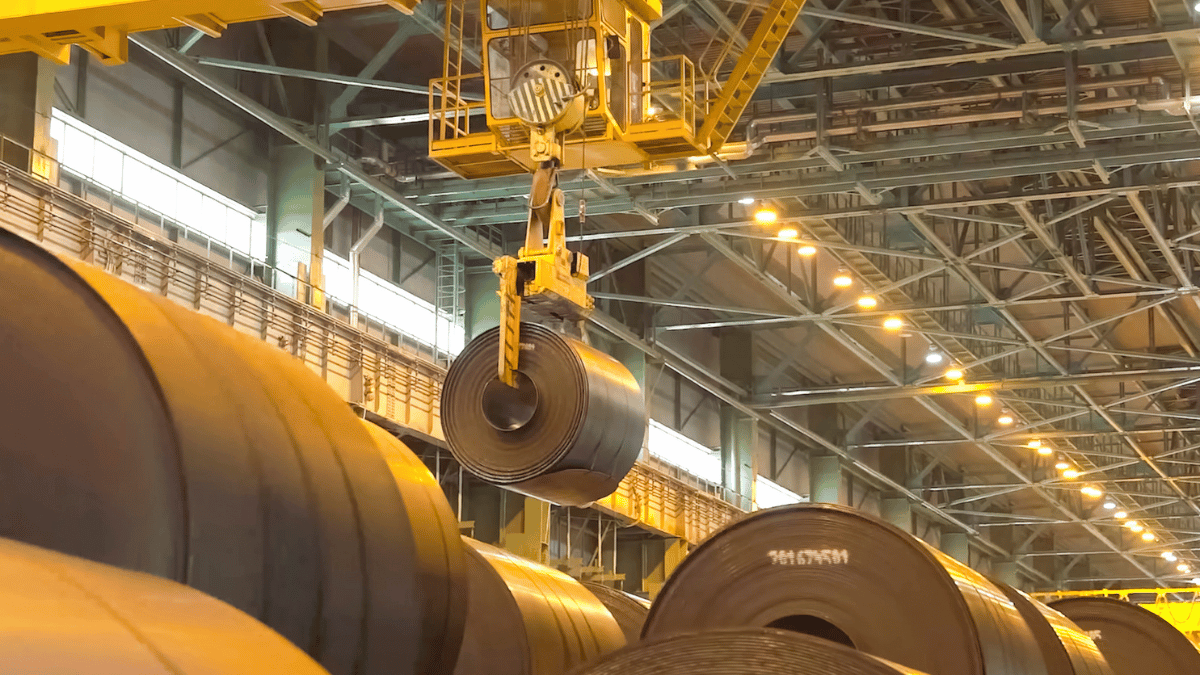ERP for Steel Manufacturing: Streamline Your Steel Production with Smart Automation

Introduction to ERP for Steel Manufacturing
The steel manufacturing industry plays a pivotal role in driving global infrastructure and industrial growth.
From construction and automotive to energy and engineering, steel is the backbone of modern civilization. Yet, behind the massive furnaces and rolling mills lies an ecosystem that is extremely complex — one that involves high capital investments, dynamic market prices, and intricate production processes.
In today’s fast-paced business environment, steel producers are facing growing pressure to enhance operational efficiency, control costs, and ensure quality while meeting customer expectations.
The era of manual coordination, isolated systems, and delayed reporting is fading rapidly. To stay competitive, manufacturers are turning toward digital transformation, powered by intelligent business automation tools like Enterprise Resource Planning (ERP) software.
An ERP system acts as the central nervous system of a steel manufacturing enterprise, connecting every department — from procurement to production, from quality assurance to dispatch — into one cohesive digital platform. It provides real-time data visibility, automates workflows, and eliminates redundancies that often hinder productivity in traditional setups.
By integrating business processes under one unified solution, ERP helps steel manufacturers respond faster to market changes, optimize production schedules, and maintain precise control over materials, manpower, and machinery.
Companies that invest in a robust ERP solution are better equipped to achieve transparency, scalability, and long-term profitability in a volatile industry landscape.
Why Steel Manufacturers Need an ERP System

Implementing an ERP solution is no longer a choice — it is a necessity for modern steel manufacturers aiming to remain competitive and compliant in an ever-evolving marketplace. Below are the major reasons why adopting ERP software can transform the steel manufacturing process.
1. Integrating All Departments Seamlessly
In a traditional setup, departments such as production, quality, maintenance, finance, and logistics often function in silos. This creates gaps in communication and delays in decision-making. ERP acts as a bridge between these departments, providing a centralized database that ensures every stakeholder has access to accurate, up-to-date information. With Nakshatra Solutions offering customized ERP systems tailored for steel manufacturing, companies can achieve complete integration and eliminate the friction caused by isolated data silos.
2. Improving Visibility, Traceability, and Reporting
Transparency is the cornerstone of efficiency in steel production. With a powerful ERP system, management can track every detail — from raw material sourcing to final dispatch. Real-time dashboards and automated reports offer visibility into production status, machine performance, and quality results. Traceability features allow manufacturers to track batch histories and quickly identify sources of defects, ensuring better accountability and product reliability.
3. Reducing Waste and Optimizing Yield
Steel manufacturing involves high material consumption and energy usage. Even minor inefficiencies can lead to massive financial losses. ERP systems enable precise monitoring of raw material usage, energy consumption, and by-product generation. By analyzing this data, companies can identify bottlenecks, reduce scrap, and improve yield rates. Nakshatra Solutions provides industry-specific ERP modules that help steel producers reduce waste, standardize processes, and achieve lean manufacturing goals.
4. Enhancing Decision-Making with Real-Time Analytics
In a competitive environment, timely decision-making can define success or failure. ERP systems offer real-time analytics, customizable dashboards, and predictive insights that empower leaders to make informed decisions. Whether it’s forecasting demand, adjusting production plans, or managing cash flow, ERP ensures that management has the right information at the right time. Nakshatra’s ERP platform integrates analytics tools that convert operational data into actionable intelligence, enabling continuous improvement.
5. Ensuring Compliance and Quality Control
Steel manufacturers must comply with multiple regulations — from environmental standards to safety and quality certifications. Managing documentation manually can be cumbersome and error-prone. ERP software automates compliance tracking, maintains audit trails, and ensures adherence to ISO and environmental norms. The system also supports digital documentation, reducing paperwork and streamlining audits.
6. Enhancing Customer Satisfaction
Customer expectations in the steel sector are rising, with increasing demand for customized products, timely delivery, and transparent communication. ERP enables better customer relationship management by linking production schedules with order management and logistics. This ensures accurate order fulfillment and real-time order tracking, strengthening client trust and retention.
7. Supporting Scalability and Future Growth
As steel manufacturers expand operations, they need systems that can scale along with them. An ERP platform provides the flexibility to add new modules, integrate with emerging technologies like IoT and AI, and accommodate multi-location operations. Nakshatra Solutions offers scalable ERP systems designed to grow with your business, ensuring long-term digital resilience and agility.
Why Choose Nakshatra Solutions for ERP in Steel Manufacturing
While ERP systems are available from many vendors, implementing one that truly understands the unique needs of the steel industry makes all the difference. Nakshatra Solutions specializes in industry-specific ERP software that caters to the complex processes of integrated steel plants, foundries, and machine shops. Their solutions go beyond basic automation — they are designed to optimize real-world production workflows, inventory control, and cost efficiency.
Here’s what sets Nakshatra Solutions apart:
- Industry Expertise: With years of experience delivering ERP systems for manufacturing sectors, Nakshatra Solutions understands the operational intricacies of steel production better than generic ERP providers.
- Customization Capabilities: The company offers tailor-made ERP modules that can be adjusted to fit specific production processes, material flows, and business rules.
- Seamless Integration: Their ERP connects smoothly with Tally, Odoo, and other enterprise systems, ensuring unified data management across finance, operations, and sales.
- End-to-End Support: From consultation and implementation to training and AMC, Nakshatra Solutions provides comprehensive support at every stage of the ERP journey.
Scalable Architecture: Built to grow with your business, Nakshatra’s ERP framework supports expansion into new plants, locations, or product lines without disruption.

Managing High Capital and Operational Costs
Steel plants require heavy machinery, continuous maintenance, and skilled labor, all of which contribute to substantial operating costs. Without accurate cost tracking, companies can struggle to maintain profitability. Energy consumption, plant downtime, and production inefficiencies can quickly erode margins. ERP systems enable real-time monitoring of cost centers, allowing management to allocate budgets more effectively and identify areas for cost reduction.

Raw Material Procurement and Price Fluctuations
The steel industry is heavily dependent on raw materials like iron ore, coal, and scrap metal — commodities whose prices are highly volatile. Inefficient procurement processes or delays in vendor management can lead to material shortages or overstocking. With ERP software, procurement teams gain visibility into vendor performance, material requirements, and pricing trends. Automated purchase planning ensures timely ordering and optimal stock levels, helping companies strike a balance between cost efficiency and production continuity.

Quality Assurance and Process Parameter Monitoring
Quality is non-negotiable in steel manufacturing. Variations in temperature, chemical composition, or rolling thickness can impact the integrity of the final product. Manual inspection and record-keeping often fail to maintain consistency. ERP systems provide integrated quality modules that capture process data in real time, link it to batch numbers, and automatically flag deviations. This ensures compliance with internal and industry standards, reducing rework, scrap, and customer complaints.

Quality Assurance and Process Parameter Monitoring
Managing raw materials, semi-finished goods, and finished products across large warehouses is another challenge for steel manufacturers. Overstocking leads to blocked capital, while understocking disrupts production. ERP systems streamline inventory management through real-time stock updates, automated reorder levels, and barcode-based material tracking. This minimizes human error and ensures that the right materials are available at the right time.

Inventory and Warehouse Management
Managing raw materials, semi-finished goods, and finished products across large warehouses is another challenge for steel manufacturers. Overstocking leads to blocked capital, while understocking disrupts production. ERP systems streamline inventory management through real-time stock updates, automated reorder levels, and barcode-based material tracking. This minimizes human error and ensures that the right materials are available at the right time.

Logistics and Delivery Scheduling
Transporting bulk materials and finished steel products involves complex logistics coordination. Delays in dispatch or inefficient route planning can affect customer satisfaction and profitability. ERP integrates logistics operations with sales and inventory modules, enabling companies to plan deliveries based on stock availability, customer priority, and optimal routing. This not only improves on-time delivery rates but also reduces transportation costs.
Core Benefits of ERP for Steel Manufacturing

The steel industry is driven by precision, efficiency, and timing. Managing complex operations across melting, rolling, and finishing units requires more than spreadsheets or isolated software.
A robust ERP system brings all these elements together to ensure that every ton of steel produced meets cost, quality, and delivery goals. Below are the core benefits of implementing ERP in steel manufacturing.
1. Enhanced Production Planning and Scheduling
Production in the steel industry involves multiple processes running in parallel — from furnace operations and billet casting to rolling and dispatch. Any delay or mismatch in planning can disrupt the entire production chain.
An ERP system automates production planning by analyzing historical data, real-time shop floor inputs, and sales forecasts. It helps in:
- Forecasting based on demand and raw material availability: The ERP aligns material inflow with production schedules, ensuring raw materials are available when needed without overstocking.
- Automating production orders: With integrated data from sales and inventory modules, production orders are auto-generated based on demand, machine availability, and manpower capacity.
- Minimizing downtime: By monitoring machine health and production status in real time, the ERP enables proactive maintenance scheduling, preventing unexpected breakdowns.
With an industry-specific ERP from Nakshatra Solutions, steel manufacturers can achieve precision in production scheduling and resource utilization, leading to improved output and profitability.
2. Efficient Material and Inventory Management
Inventory control in steel manufacturing is far more complex than in other industries. Managing heavy raw materials like iron ore, coal, alloys, and scrap requires advanced tracking and optimization.
ERP software simplifies this through:
- Batch and lot tracking: Each material batch is recorded with details like grade, source, and heat number. This ensures traceability throughout the production process.
- Optimizing material movement: ERP systems map warehouse layouts and automate internal material transfers between production stages, minimizing movement time and human error.
- Real-time stock visibility: With continuous updates from stores and production departments, managers can view exact stock levels and consumption patterns at any time.
Nakshatra Solutions provides ERP modules specifically designed for bulk material management in steel plants, helping businesses eliminate wastage, prevent stockouts, and maintain lean inventory practices.
3. Quality Management and Traceability
Quality consistency defines a steel manufacturer’s reputation. Small variations in chemical composition or mechanical properties can affect the product’s strength and performance.
An ERP system ensures superior quality control through:
- Process parameter monitoring: The ERP captures critical production parameters like temperature, pressure, and chemical mix in real time. Any deviation triggers alerts for corrective action.
- Recording test certificates: Laboratory test results and material certifications are automatically linked to specific heat numbers or batches.
- End-to-end traceability: From the moment raw materials enter the plant to the dispatch of finished products, every transaction and process is traceable.
By integrating a Quality Management System (QMS) within the ERP, Nakshatra Solutions helps steel producers maintain consistent standards, comply with ISO requirements, and improve customer trust.
4. Financial and Cost Control
Cost optimization is vital in a capital-intensive industry like steel manufacturing. ERP systems provide complete financial transparency across departments.
Key features include:
- Division-wise and product-wise cost tracking: ERP enables granular analysis of expenses for each production unit, machine, or product line.
- Yield variance and cost deviation analysis: By comparing actual vs. planned production data, the system highlights inefficiencies and material losses.
- Budgeting and forecasting: Finance teams can create accurate budgets, track spending, and project future costs using integrated analytics.
With the financial modules offered by Nakshatra Solutions, steel manufacturers gain real-time insight into profitability, enabling smarter financial decisions and long-term cost efficiency.
5. Streamlined Sales and Distribution
For steel manufacturers, sales and logistics operations are as critical as production. Timely delivery, proper documentation, and transparent pricing directly influence customer satisfaction.
ERP systems streamline the order-to-cash process through:
- Order-to-delivery tracking: Every customer order is tracked from quotation to dispatch, ensuring visibility and timely fulfillment.
- Dynamic pricing and e-invoicing: Integrated pricing engines allow flexible price adjustments based on cost fluctuations, while automated invoicing ensures compliance with GST norms.
- Logistics integration: ERP connects with weighbridges, GPS tracking systems, and transporters for accurate shipment records and vehicle scheduling.
With Nakshatra Solutions, steel companies can integrate logistics operations into their ERP, minimizing delivery delays and boosting overall supply chain efficiency.
6. Real-time Reporting and Analytics
Data-driven decision-making is the foundation of modern manufacturing excellence. ERP software provides interactive dashboards and detailed reports to monitor performance metrics across all departments.
Capabilities include:
- Key performance indicators (KPIs): Production output, downtime, energy usage, and inventory turnover are tracked through real-time dashboards.
- Predictive analytics: Advanced algorithms analyze trends to forecast material demand, equipment performance, and market fluctuations.
- Customizable MIS reports: Managers can generate tailored financial, production, or compliance reports for internal reviews or audits.
Nakshatra Solutions integrates powerful Business Intelligence (BI) tools within its ERP platform, enabling steel manufacturers to move from reactive management to proactive decision-making.
Key Features of an Effective Steel ERP System
Choosing the right ERP system for steel manufacturing involves understanding which features truly make a difference in plant operations. A well-designed ERP should support every function — from the melt shop to dispatch — with automation and intelligence.
Production and Process Control
Steel manufacturing is a continuous process where precision and timing are crucial. ERP software ensures real-time monitoring and control through:
- Melt shop and rolling mill integration: Supervisors can view live data from production units, ensuring that each stage aligns with planned targets.
- Shift-wise and batch-wise tracking: Production data is logged per shift and batch, allowing traceability and performance comparison.
- Process parameter alerts: The ERP automatically detects deviations in temperature, chemical composition, or rolling thickness and alerts operators immediately.
Nakshatra’s ERP modules for steel production are designed to integrate seamlessly with existing automation systems, ensuring synchronization between machines and management.
Material Requirement Planning (MRP)
Efficient material planning ensures that production lines never halt due to shortages. An ERP with a strong MRP module provides:
- Forecast-based planning: The system uses demand data and sales forecasts to plan procurement and stock replenishment.
- Vendor integration: Purchase orders and material receipts are automated, ensuring smoother supplier coordination.
- Cost optimization: ERP prevents excess inventory, freeing up working capital for other operations.
With Nakshatra Solutions, steel producers can implement intelligent MRP systems that balance material availability with production needs.
Quality Management System (QMS)
A built-in QMS within ERP ensures continuous monitoring and improvement of product quality:
- Defect tracking: All quality deviations are recorded and analyzed to identify root causes.
- Non-conformance management: Corrective and preventive actions (CAPA) are documented within the system.
- Automated inspection workflows: Inspections at various stages — from raw material to finished goods — are planned and tracked digitally.
Nakshatra’s ERP solution integrates these QMS features, enabling seamless compliance with both internal quality standards and external certifications.
Maintenance and Asset Management
Plant equipment such as furnaces, cranes, and rolling mills are high-value assets that require regular upkeep. ERP simplifies maintenance through:
- Predictive maintenance schedules: Based on equipment runtime and condition data, the system automatically suggests maintenance intervals.
- Asset utilization reports: Management can track equipment performance, downtime, and repair history.
- Downtime tracking: Every minute of downtime is recorded, helping reduce future breakdowns.
Nakshatra Solutions offers maintenance modules that help steel plants maximize uptime, minimize repair costs, and extend asset life.
Finance and Accounting Integration
A fully integrated financial system ensures transparency and compliance across all business units:
- Automated postings: Production, purchase, and sales transactions automatically update the general ledger.
- Multi-location and multi-currency support: Ideal for companies with global operations or multiple plants.
- Real-time financial visibility: Managers can analyze profitability and cash flow in real time.
Nakshatra’s ERP seamlessly integrates accounting with operational modules, ensuring financial accuracy and eliminating redundant data entry.
Weighbridge and Logistics Integration
Managing incoming and outgoing materials in steel plants involves heavy transportation and weighing operations. ERP systems with weighbridge integration offer:
- Automatic weight capture: Data from the weighbridge is directly recorded in the ERP, eliminating manual errors.
- Fleet tracking: GPS and IoT integration allow real-time vehicle monitoring.
- Dispatch scheduling: Logistics teams can schedule and track deliveries efficiently.
With Nakshatra Solutions, manufacturers can streamline logistics operations, ensuring faster turnaround and accurate billing.
Business Intelligence and Reporting
ERP isn’t just about recording data — it’s about transforming data into insights. Advanced BI features include:
- Real-time dashboards: Visualize production, sales, and financial metrics instantly.
- Drill-down analytics: Identify performance gaps at machine, product, or employee levels.
- Profitability analysis: Understand which products, customers, or plants generate the most profit.
Nakshatra’s BI-integrated ERP systems help steel manufacturers make data-backed decisions and optimize operations continuously.
Compliance and Document Management
Compliance is crucial in the steel sector, especially concerning GST, safety, and environmental regulations. ERP simplifies this through:
- Integration with GST and e-invoicing: Ensures accurate tax filings and reduces manual paperwork.
- Automated document storage: All records, test certificates, and audit documents are securely stored within the ERP.
- Statutory compliance tracking: Alerts notify users about upcoming audits or license renewals.
With the compliance-ready ERP offered by Nakshatra Solutions, steel companies can maintain transparency, avoid penalties, and ensure smooth audits.
Industry-Specific Modules for Steel Manufacturing ERP
Every steel plant has its own production setup — whether it’s a blast furnace-driven integrated unit or an induction-based rolling mill. Generic ERP systems often fall short in addressing these complex workflows. A steel-focused ERP solution incorporates industry-specific modules that manage every technical and operational layer of the business.
Melt Shop Management Module
The melt shop is the heart of any steel plant. Managing furnace operations, heat numbers, and chemical compositions requires precision.
The Melt Shop Management Module in ERP software tracks every heat from charge preparation to tapping. It records furnace temperature, power consumption, and raw material mix ratios. Operators can monitor real-time parameters, log chemical analysis results, and maintain production efficiency benchmarks.
With Nakshatra Solutions, steel manufacturers gain complete control over furnace operations, enabling accurate heat tracking and improved yield through data-backed adjustments.
Rolling Mill Management Module
Rolling operations transform billets or ingots into finished products like rods, bars, or sheets. Managing these processes manually can result in size inconsistencies and wastage.
The Rolling Mill Management Module automates scheduling, pass sequence management, and roll changes. It captures rolling speeds, temperature data, and product dimensions, ensuring quality uniformity.
Nakshatra Solutions designs ERP modules that integrate directly with machine-level data and sensors, offering real-time throughput visibility, production traceability, and reduced downtime.
Scrap and By-Product Management
Steel manufacturing inherently produces scrap, slag, and scale — materials that can be recycled or reused. Without systematic management, these by-products can add to waste and operational costs.
ERP software helps plants categorize, quantify, and repurpose scrap materials efficiently. It tracks scrap generation per process, automates valuation, and links recovered materials back into inventory.
With Nakshatra’s ERP, companies can implement circular manufacturing practices, turning waste into value while contributing to sustainability goals.
Batch Costing Module
Understanding the true cost of production is crucial for profitability analysis. The Batch Costing Module allocates costs per batch, heat, or shift by integrating data from production, inventory, and finance. It accounts for variables such as energy usage, raw material consumption, and manpower hours.
Steel plants using Nakshatra’s ERP can generate real-time batch-wise cost reports, compare them against benchmarks, and identify areas for improvement, ensuring transparent cost control across all operations.
Customer Relationship Management (CRM)
In an increasingly competitive market, customer satisfaction is key to business growth. A CRM module within ERP allows steel companies to manage client orders, track deliveries, record feedback, and resolve service issues quickly.
It maintains a complete history of quotations, order revisions, and dispatch details, ensuring accuracy in commitments and timely delivery.
Nakshatra Solutions integrates CRM functionalities with production and logistics modules, enabling sales teams to offer reliable delivery schedules backed by real-time plant data.
How ERP Transforms Steel Manufacturing Operations
ERP implementation isn’t just a technology upgrade — it’s a transformation in how the business operates. By connecting processes, people, and data, ERP software redefines efficiency for steel producers.
Eliminates Data Silos
Traditional systems often operate independently — finance, production, inventory, and HR maintain their own databases. This leads to duplication and delays. ERP eliminates these silos by creating a centralized information hub. Every transaction, from raw material receipt to sales invoice, flows through the same system, improving transparency and collaboration.
Automates Manual Reporting and Approvals
Manual reporting consumes valuable time and is prone to human error. ERP automates these processes, generating reports and routing approvals electronically. Department heads can access real-time updates, approve transactions instantly, and monitor KPIs on digital dashboards. Nakshatra Solutions enhances this automation through workflow customization, enabling smart, paperless operations.
Improves Cross-Department Coordination
In steel plants, procurement depends on production forecasts, which rely on sales orders and available inventory. ERP synchronizes these departments so that each action automatically triggers the next. This ensures seamless communication between procurement, production, and finance — minimizing delays and improving resource allocation.
Enables Real-Time Decision-Making
One of the greatest advantages of ERP is real-time visibility. Managers can view plant performance, inventory status, and order progress instantly. This live data enables proactive decisions, reducing production bottlenecks and improving profitability.
Nakshatra Solutions provides ERP dashboards that translate complex data into actionable insights, empowering management to make quick, confident decisions.
Choosing the Right ERP for Steel Manufacturing
Selecting an ERP system for steel manufacturing requires careful evaluation of business needs, technical capabilities, and vendor expertise. Here are key considerations for decision-makers:
Cloud vs. On-Premise ERP
Cloud ERP offers flexibility, scalability, and remote accessibility — ideal for companies with multiple locations or distributed teams. On-premise ERP, meanwhile, provides tighter control over infrastructure and data.
Nakshatra Solutions offers both deployment models, allowing steel companies to choose the configuration that best suits their IT strategy and budget.
Customization and Scalability
Every steel plant operates differently, depending on its processes, equipment, and production goals. A successful ERP implementation must adapt to these unique workflows.
Nakshatra Solutions specializes in custom-built ERP modules tailored for steel production, ensuring scalability as operations expand or new plants are added.
Integration with Existing Systems
Steel manufacturers often use systems like Tally for accounting, SCADA for process control, or PLCs for machine automation. An effective ERP must integrate seamlessly with these systems.
Nakshatra’s ERP architecture supports plug-and-play integration with third-party platforms, preserving existing investments while enhancing functionality.
Vendor Experience in Steel and Manufacturing
ERP vendors with domain expertise understand the nuances of melting, casting, and rolling operations better than generic software providers. Nakshatra Solutions brings years of hands-on experience in developing ERP systems for foundries, machine shops, and steel plants — ensuring solutions that match real-world industry demands.
Post-Implementation Support and Training
ERP success depends on user adoption. Continuous support, training, and system optimization are critical. Nakshatra Solutions offers comprehensive post-implementation assistance, including user training, AMC services, and remote troubleshooting, ensuring smooth and sustained system performance.
Top ERP Solutions for Steel Manufacturing
The ERP landscape offers a range of platforms catering to steel manufacturers, from small-scale rolling mills to integrated steel giants. Some of the notable systems include:
1. Lighthouse ERP
Specifically designed for the integrated steel industry, Lighthouse ERP covers all business processes — from melt shop management to dispatch. It’s widely used in foundries, rolling mills, and sponge iron plants.
2. Spectrum ERP
A comprehensive solution developed for steel and metal manufacturers, Spectrum ERP focuses on process automation, MRP, and business analytics. It offers strong financial control and multi-unit management capabilities.
3. Sage X3
Sage X3 is a global ERP solution suitable for medium and large-scale steel enterprises. It offers robust inventory control, production management, and financial analytics with strong compliance tools.
4. ERPNext
An open-source ERP platform, ERPNext provides modular flexibility for steel and metal industries. It supports production planning, inventory tracking, and accounting in a cost-effective manner.
5. SAP S/4HANA and Oracle NetSuite
These are enterprise-grade ERP systems designed for large steel corporations with global operations. They deliver advanced analytics, cloud scalability, and integration with AI and IoT technologies.
However, for mid-sized and growing steel companies, implementing a custom-built ERP from Nakshatra Solutions offers the best of both worlds — the flexibility of tailored modules with the reliability of proven industry expertise.
Future Trends in Steel Manufacturing ERP
The ERP ecosystem is evolving rapidly with new technologies reshaping the way steel plants operate. The next decade will witness smarter, more connected systems driven by artificial intelligence, IoT, and sustainability initiatives.
AI-Driven Demand Forecasting and Predictive Maintenance
Artificial intelligence enables ERP systems to analyze historical sales and market data to predict demand fluctuations. Similarly, predictive maintenance algorithms monitor equipment performance to forecast breakdowns before they occur, minimizing downtime.
IoT Integration for Equipment Health Monitoring
IoT sensors collect data from furnaces, rolling mills, and cranes to track temperature, vibration, and performance. This data integrates with ERP systems, allowing real-time equipment monitoring and preventive maintenance scheduling.
Cloud ERP for Global Visibility
As steel companies expand globally, cloud-based ERP ensures anytime, anywhere access to operational data. Managers can monitor multiple plants from a unified dashboard, making global coordination effortless.
Sustainability Tracking
With increasing focus on ESG goals, ERP systems now include tools for carbon footprint monitoring, energy usage analysis, and waste management. Nakshatra Solutions integrates sustainability metrics into its ERP systems, helping steel producers meet green manufacturing targets and regulatory compliance.
Conclusion
The steel manufacturing sector is entering a new age of digital transformation, where data-driven decisions and process automation determine success. From optimizing production and inventory to improving customer satisfaction, ERP software has become the foundation of smart steel manufacturing.
However, the true value of ERP lies not just in technology — but in how well it aligns with your industry and business goals. That’s where Nakshatra Solutions stands apart.
As a trusted ERP provider for steel, foundry, and manufacturing industries, Nakshatra Solutions delivers customized, scalable, and integrated ERP platforms that empower manufacturers to gain visibility, reduce costs, and enhance efficiency.
By choosing Nakshatra Solutions as your digital transformation partner, your steel enterprise can embrace automation confidently — moving toward greater productivity, sustainability, and profitability in the years ahead.




